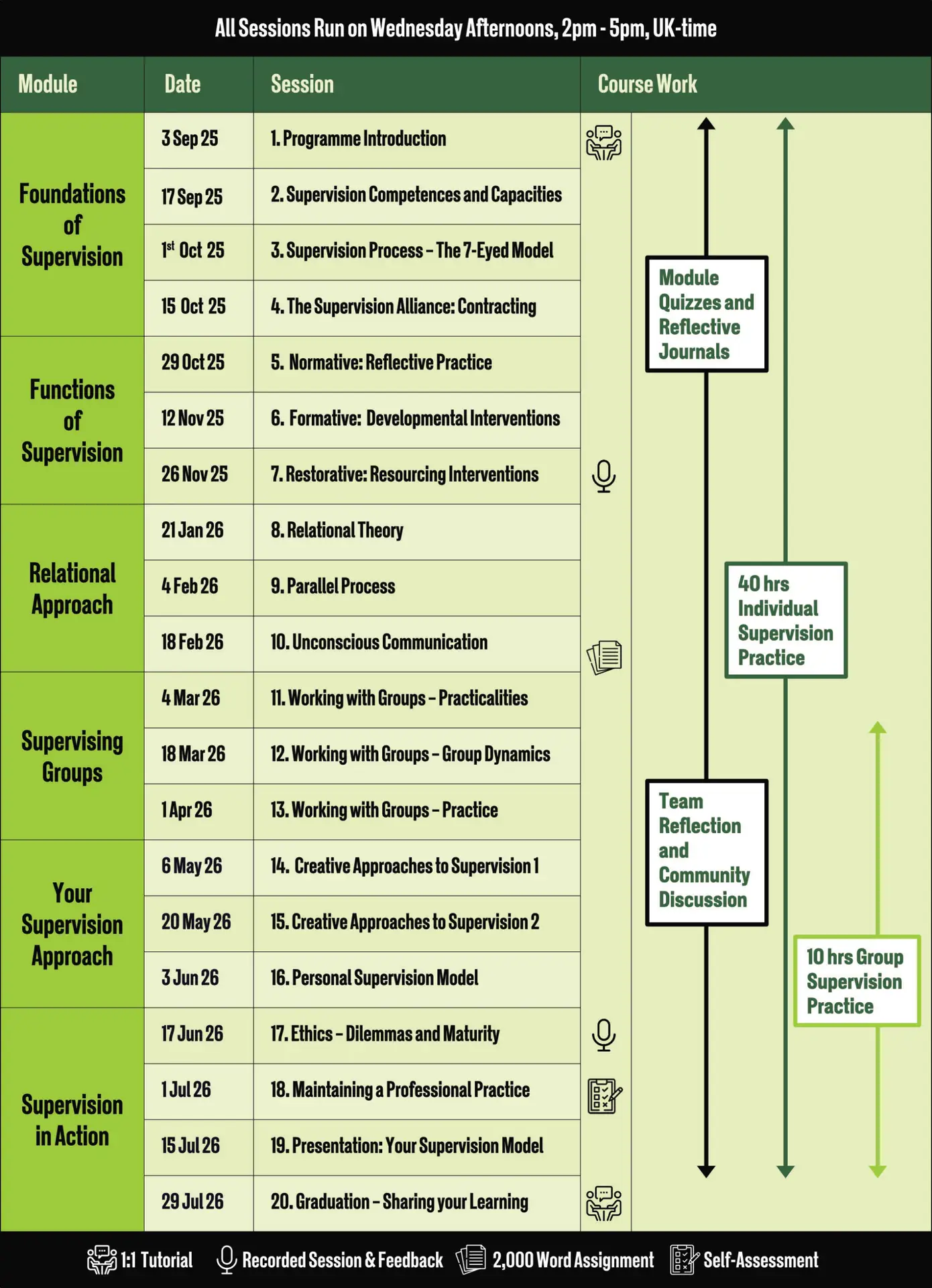Diploma in Coaching Supervision
September 2025 – July 2026
The purpose of this programme is to train, qualify and accredit coach supervisors.
Audience
The course has been developed for experienced coaches, operating at the level of Senior Practitioner (with EMCC Global or AC), PCC (with ICF), Level 7 (with ILM) or any other equivalent accreditation status.
Accreditation
Successful completion of the programme meets all EMCC Global training requirements for individual accreditation as a supervisor. Eligible candidates (with 120 practice hours) will be awarded EMCC accreditation as a supervisor upon graduation.
Process
We apply an experiential learning approach combining taught input, reflection and dialogue, practice in a safe environment, detailed feedback, and experimentation with live clients.
Course Overview
Course Timings
We have designed this programme to align well with the life of a busy professional. Training sessions are short and well-spaced over 12 months.
Course Components
The programme is focused around 20 live, virtual training modules.
In addition to their ongoing practice, participants will receive faculty feedback on ten reflective journal entries, submit and receive feedback on two recorded supervision sessions, participate in the online group discussion, write a 2000-word essay, peer review a colleague’s assignment, and carry out a final self-assessment exercise.
Learners will also begin and end the course with a 1:1 tutorial with course faculty.
The Course at a Glance
- 20 live training modules
- 10 Group Reflection Exercises
- 1:1 & Group Supervision Practice
- Online Learning Environment
- Faculty Feedback on 2 x Recordings
- Faculty Feedback on 10 Journal Entries
- 2000-word assignment
- Assessment and Accreditation (if eligible)
Supervision is safe space for reflective dialogue with a practicing supervisor, supporting the supervisee’s practice, development, and well-being.
MODULE 1
FOUNDATIONS OF SUPERVISION
Learners will discover the basics of supervision. Learning groups will be established and will meet for the first time. Individuals will also pair up with each other to form practice supervision pairs and will start supervising each other in their own time. Reflective Journals will start and learners will contribute to the online community discussion forum.
Programme Introduction
- 1:1 Tutorial
Supervision Competences and Capacities
Defining Supervision. Working with the Supervision Competence Framework. We explore what it means to be an effective reflective (and reflexive) practitioner.
Working with The 7-Eyed Model
The Supervision Alliance: Contracting
Establishing a working alliance between supervisor and supervisee.
MODULE 2
FUNCTIONS OF SUPERVISION
Normative: Reflective Practice
Ensuring practice is safe, ethical and lawful. Focusing on standards, codes of ethics, and quality of service.
Formative: Developmental Interventions
How the supervisor supports the supervisee to improve their competence as a coach.
Restorative: Resourcing Interventions
- Recorded Session & Feedback
Recorded Session
During Module 2, learners will record one of their supervision sessions.
Learners will provide feedback to each other on their recorded sessions.
Written feedback will be provided by a member of faculty.
Learners will collect feedback and use this to inform their ongoing learning objectives .
2000 Word Assignment
At the end of this module we introduce the 2000 word essay. This is a reflective exercise in which learners consider their supervision journey so far and consolidate their thoughts.
Social learning is an important aspect of this course. Learners will meet informally, in small groups to present and discuss their work.
MODULE 3
THE RELATIONAL APPROACH
Relational Working
Drawing on social constructionism and a narrative interpretation of the self. A co-creative approach to working with supervisees.
Parallel Process
Noticing, understanding and working explicitly with ‘parallel ‘process’. Applying a relational lens to parallel process.
Unconscious Processes
Noticing and working with unconscious processes, including transference, counter- transference, projection, projective identification.
- 2,000 Word Assignment
MODULE 4
SUPERVISING GROUPS
Groups: Practicalities
Groups: Interpersonal Dynamics
Groups: Practice and Feedback
Progress Update
By the end of Modul 4, learners have accumulated at least twenty hours of 1:1 supervision experience and are developing their personal style.
They have completed reflective learning assignments, provided feedback to each other on a recorded supervision session and are working on their 2000 word consolidation essays.
Learners have also submitted reflective journal entries and participated in the online discussion forum.
Focus Areas
At this point in the programme, learners are invited to work at the edges of their practice; where intuition, uncertainty, and presence take precedence over technique. Creative approaches are introduced not as tools, but as gateways to authenticity. In reflective groups, themes of stuckness, spontaneity, and not-knowing are explored through live, relational enquiry.
MODULE 5
YOUR SUPERVISION APPROACH
At this stage in the programme, learners are encouraged to experiment and stretch the boundaries of their practice as supervisors. We introduce creative approaches to supervision and invite learners to identify ways of working that are authentic and unique to them. They may discuss this in their third reflective learning group, which takes place now.
Creative Approaches to Supervision 1
An enquiry into freedom, stuckness, spontaneity and not-knowing. Working ‘live’.
Creative Approaches to Supervision 2
Introduction: Your Supervision Model?
MODULE 6
SUPERVISION IN ACTION
During the final module learners will be preparing for graduation and their future practice as qualified supervisors. Learners will start collecting feedback from their supervisees and complete a process of personal self-assessment against the learning outcomes, with reference to the EMCC Supervision Competence Framework.
Learners will also complete their fourth and final optional reflective learning group session during this period.
Ethical Dilemmas in Supervision
- Recorded Session & Feedback
Maintaining a Professional Practice
- Self Assessment
Presentation of Personal Supervision Model
Graduation
Recorded Session 2
During Module 6, learners will record another supervision session.
This will be reviewed by faculty and will play a part in the overall assessment of candidates, resulting in their graduation from the programme, and accreditation with EMCC Global (subject to membership and 120 practice hours).
Programme Fee: £5,000
Payable in full or in quarterly instalments.
Please get in touch to discuss the best option for you.
COURSE COMPLETION
Assessment
Attendance
It is essential that learners attend a minimum of 80% of all sessions (taught modules and learning group sessions). If sessions are missed, these need to be made up for by listening to the recording of the session and carrying out a small amount of additional homework.
Total Qualification Time:
Total Qualification Time:
| 20 x 2.5hr Zoom Modules | 50 hours |
| 1:1 Supervision Practice | 40 hours |
| Group Supervision Practice | 10 hours |
| Homework | 50 hours |
| Total (maximum estimate) | 150 hours |
Accreditation Criteria
- Accreditation with EMCC Global at Senior Practitioner level.
- Successful completion o f the programme.
- Membership of EMCC Global (150 Euros/year).
- Minimum of 120 supervision practice hours.
- Minimum of 10 Supervisees (past or present).
- Minimum quarterly 1:1 supervision of practice.
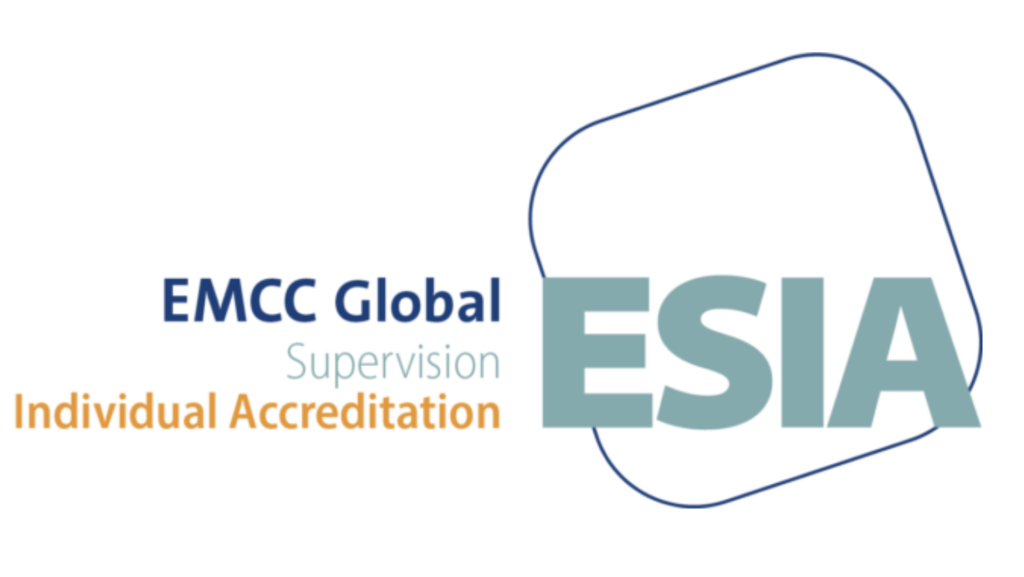
ALIGNMENT WITH BOTH EMCC AND ICF
This EMCC-accredited programme also carries 40 ICF CCEUs.
Graduates who are EMCC members, complete the programme, and have 120+ practice hours will automatically gain the ESIA supervisor accreditation.
The course fee includes accreditation (not including EMCC membership fees).
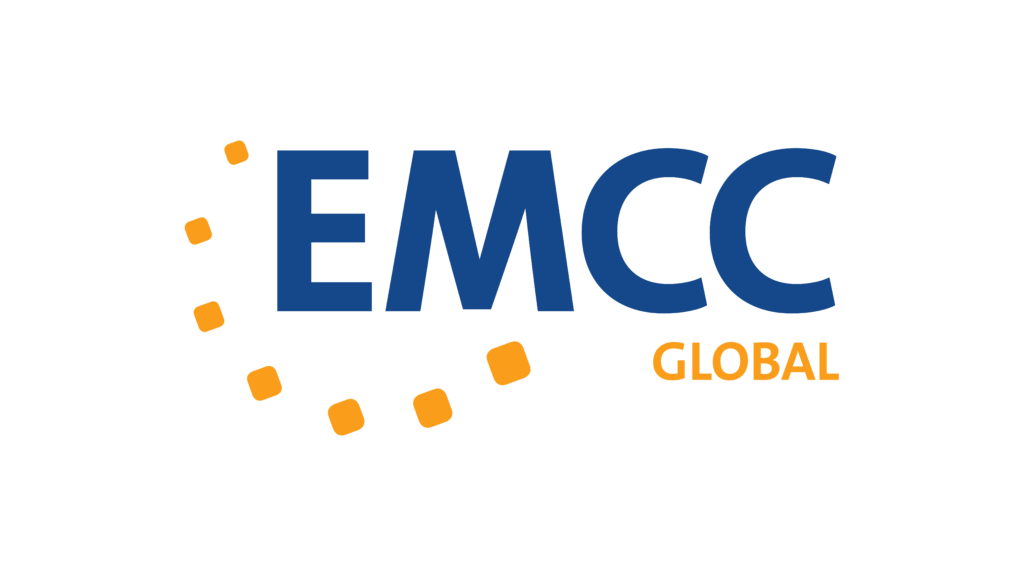
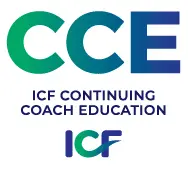
ONLINE LEARNING PLATFORM
We use world-class online learning platform which acts as a secure base for all the work that we do over the 12-month period.
All the handouts contained within the programme will be available here, along with homework assignments and space for community discussion.
The platform acts as a container for the learning journey undertaken by participants.
Each module gets unlocked at the right time, and all learner requirements are made clear and visible.
Progress is indicated visually, and overdue tasks are highlighted.
Each module has a Community Discussion area where participants will share resources and reflections. Sessions are also followed up with a mini quiz.
The reflective journal activity is an important part of the process: during the second half of the programme, we encourage social learning by partnering participants with each other to review each other’s reflections.
Accreditation supports and regulates an individual’s ongoing professional practice and provides a focus for their ongoing development.
Meet the Team
Faculty is made up of seven highly experienced coaches, supervisors and educators in this field. The team is led by Tom Battye.

Tom Battye
Tom began supervising in 2007 and has maintained an active supervision portfolio since that time, working with internal coaches, professional services firms and independent consultants.
Internal Coaches
Tom has delivered coaching supervision inside a range of organisations including the BBC, the Dept for Business and Skills, Schlumberger, the Foreign, Commonwealth & Development Office and Department for Business, Energy and Industrial Strategy.
Professional Services
Various leadership development organisations have commissioned Tom to supervise their full-time consultants. These have included Lane4, Mission Performance, RogenSi and Impact International.
Independent Practitioners
Tom also works with independent coaches and consultants supporting them to reflect on their practice, deliver their best work and keep developing as professionals.
Approach to Supervision
Tom’s focus as a supervisor covers
- Developing personal and professional coaching capability
- Ensuring professional standards are achieved consistently
- Increasing the coach’s systemic awareness
- Supporting practitioner wellbeing
- Exploring and working with ethical dilemmas
- Developing a coaching practice or business
- Becoming a more effective reflective practitioner
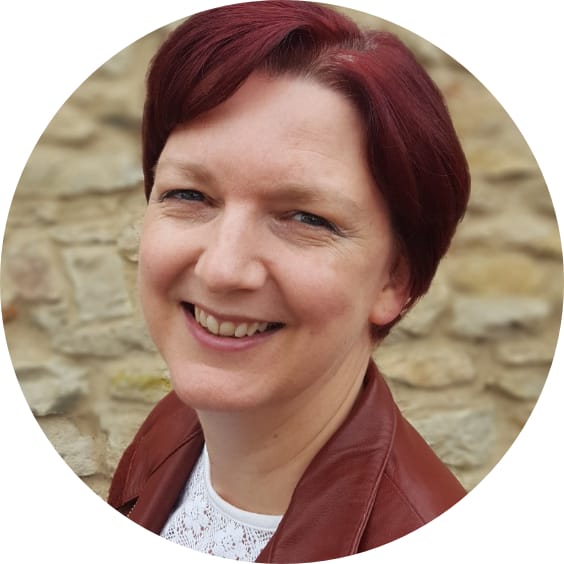
Lisa Young
Lisa is the programme administrator and will take responsibility for the day-to-day, logistics of the course. Lisa has over 25 years’ experience in PA and administration roles in various companies and extensively in the Learning & Development sector.
Next steps
Talk to Tom
If you would like to find out more, please book onto one of the dedicated information sessions for the next programme using the link below. This is a live meeting run by Tom to answer all your questions.
Thank you for booking!
You’re now registered for the Supervision Diploma Information Session. Please check your email for details.
Apply to take part
Alternatively, you may apply to join the programme using the following application Form.

